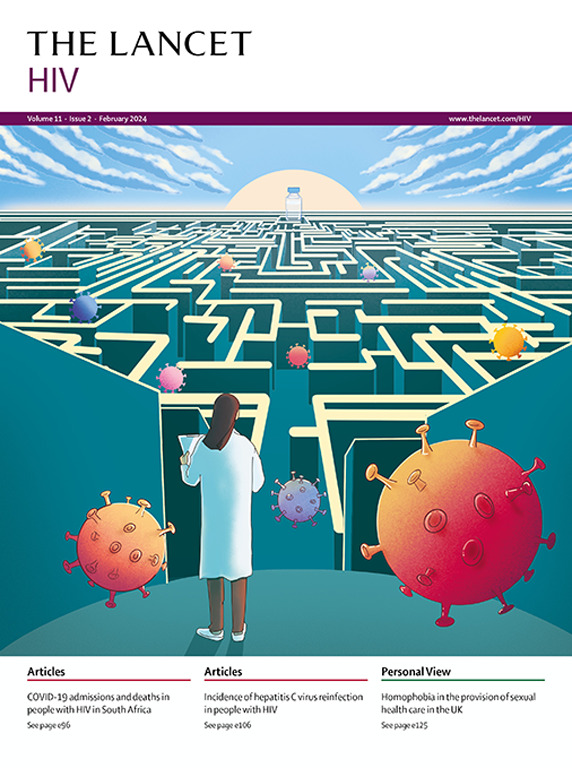了解和管理艾滋病毒感染者的睡眠障碍。
IF 13
1区 医学
Q1 IMMUNOLOGY
引用次数: 0
摘要
艾滋病毒感染者在心脏代谢、情绪和认知障碍方面的负担更高。睡眠质量差和睡眠不足都与这些合并症的风险增加有关,并且在艾滋病毒感染者中更为常见。虽然以前的综述已经探讨了艾滋病病毒感染者睡眠抱怨的患病率和风险因素,但很少有人通过潜在的潜在原因来区分这些抱怨。艾滋病毒感染者的睡眠紊乱可能是由艾滋病毒特异性睡眠干扰因素引起的,包括病毒的直接影响、慢性炎症和抗逆转录病毒治疗。还有证据表明,艾滋病病毒感染者的睡眠更脆弱,一些常见的睡眠障碍,如阻塞性睡眠呼吸暂停、慢性失眠和昼夜节律障碍,可能对艾滋病病毒感染者造成特别大的问题。了解艾滋病毒如何独特地破坏睡眠生理学,可以为开发量身定制的、基于机制的管理策略提供信息,以改善艾滋病毒感染者的睡眠健康。本文章由计算机程序翻译,如有差异,请以英文原文为准。
Understanding and managing disordered sleep in people with HIV.
People with HIV experience higher burden of cardiometabolic, mood, and cognitive disorders. Poor-quality and insufficient sleep are both associated with increased risk for these comorbidities and are more common in people with HIV. Although previous reviews have explored the prevalence and risk factors for sleep complaints in people with HIV, few have differentiated these complaints by potential underlying causes. Disordered sleep in people with HIV might arise from HIV-specific sleep disruptors, including direct effects of the virus, chronic inflammation, and antiretroviral treatment. There is also evidence that sleep is more fragile in people with HIV and some common sleep disorders, such as obstructive sleep apnoea, chronic insomnia, and circadian rhythm disorders, might be particularly problematic in people with HIV. Understanding how HIV uniquely disrupts sleep physiology could inform the development of tailored, mechanism-based management strategies to improve sleep health in people with HIV.
求助全文
通过发布文献求助,成功后即可免费获取论文全文。
去求助
来源期刊

Lancet Hiv
IMMUNOLOGYINFECTIOUS DISEASES&-INFECTIOUS DISEASES
CiteScore
19.90
自引率
4.30%
发文量
368
期刊介绍:
The Lancet HIV is an internationally trusted source of clinical, public health, and global health knowledge with an Impact Factor of 16.1. It is dedicated to publishing original research, evidence-based reviews, and insightful features that advocate for change in or illuminates HIV clinical practice. The journal aims to provide a holistic view of the pandemic, covering clinical, epidemiological, and operational disciplines. It publishes content on innovative treatments and the biological research behind them, novel methods of service delivery, and new approaches to confronting HIV/AIDS worldwide. The Lancet HIV publishes various types of content including articles, reviews, comments, correspondences, and viewpoints. It also publishes series that aim to shape and drive positive change in clinical practice and health policy in areas of need in HIV. The journal is indexed by several abstracting and indexing services, including Crossref, Embase, Essential Science Indicators, MEDLINE, PubMed, SCIE and Scopus.
 求助内容:
求助内容: 应助结果提醒方式:
应助结果提醒方式:


